Covid world: The Philippines thrust into a ‘crisis within a crisis’
The Philippines is struggling to recover from a devastating and deadly typhoon as response efforts are hampered by a surge in Covid infections.
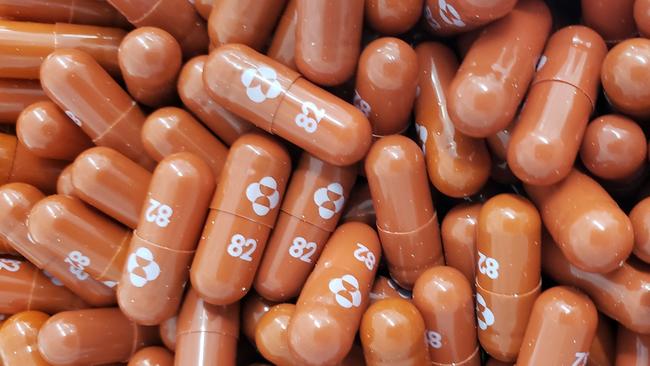
World
Don't miss out on the headlines from World. Followed categories will be added to My News.
The Philippines has been thrust into a “crisis within a crisis” as it struggles to recover from the impact of a deadly typhoon amid a surge of Covid-19 infections, according to a United Nations spokesperson.
More than 400 people were killed and hundreds of thousands left homeless after Rai hit the archipelago as a super typhoon in December, ripping off roofs, shredding wooden houses and wiping out crops.
Around 1.7 million houses were destroyed or badly damaged in the typhoon – 600,000 more than in 2013’s Super Typhoon Haiyan – and tens of thousands of people remain in evacuation centres seven weeks after Rai made landfall.
Power disruptions or outages continue to plague 80 municipalities, but according to the United Nations Resident Coordinator in the Philippines Gustavo Gonzalez, the response effort has been hampered by an Omicron-driven surge in Covid-19 infections.
Mr Gonzalez described the situation as a “crisis within a crisis”, AFP reports.
The UN has increased its fundraising target for victims of Typhoon Rai to $169 million, the organisation’s resident co-ordinator said Wednesday.
The UN initially sought $107.2 million for 530,000 people in the hardest-hit areas in central and southern regions of the country flattened by the typhoon.
According to Mr Gonzalez, more than 70 field assessments showed “humanitarian needs remain very high”.
The new target would assist the 840,000 “most vulnerable people” in dire need of shelter, food, drinking water and sanitation facilities, Gonzalez said.
About 30 per cent of the revised amount had been received, he added. Humanitarian groups have been working with the government to distribute aid. But the challenges were “enormous”, Mr Gonzalez said,
“Affected regions bore massive damage to infrastructure, agricultural land and the fishing sector, with local economies and livelihoods hit hard,” he added.
Rai, the strongest typhoon to hit the Philippines last year, intensified faster than expected, officials said previously.
TSUNAMI-HIT TONGA TO ENTER LOCKDOWN
Tonga will go into Covid-19 lockdown from Wednesday after the virus was detected in a fresh blow to the Pacific kingdom as it struggles to recover from last month’s devastating volcanic eruption, officials said.
The remote island nation had been virus free, but Prime Minister, Siaosi Sovaleni said two men tested positive this week in Nuku’alofa.
He said the men had been working in the capital’s port, where humanitarian aid has been pouring in from around the globe since the January 15 eruption.
In a national address late Tuesday, Sovaleni said Tonga would enter lockdown from 6pm (0500 GMT) Wednesday, with the situation reviewed every 48 hours.
The volcanic blast, one of the biggest recorded in decades, generated massive tsunami waves and blanketed the island nation in toxic ash, claiming three lives.
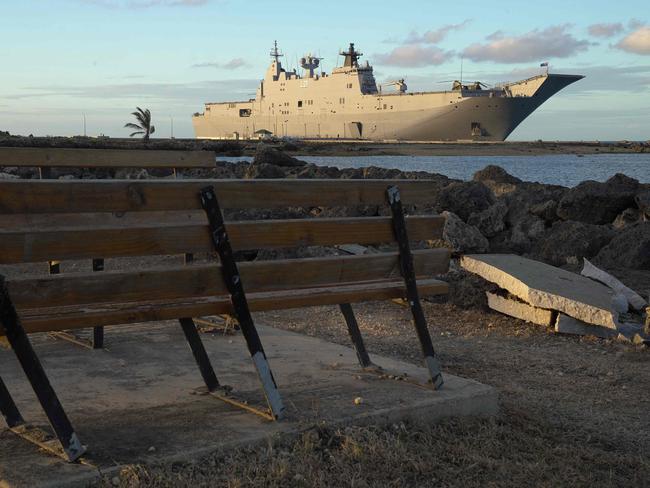
Tonga closed its borders in early 2020 as the coronavirus pandemic swept the globe.
Since then, the nation of 100,000 had recorded just one case of Covid-19, a man who returned from New Zealand in October last year and has since fully recovered.
However, the devastating blast from the Hunga Tonga-Hunga Ha’apai volcano, which lies about 65 kilometres (40 miles) north of the capital Nuku’alofa, created what the Tongan government describes as an “unprecedented disaster”.
In response, navy ships from Australia, New Zealand, the United States, France and Britain have delivered aid including drinking water, medical supplies and engineering equipment.
All of the deliveries have been handled using strict “no-contact” protocols in a bid to keep the virus at bay.
Sovaleni did not reveal which ship the affected men had been working with. He said they were asymptomatic and double vaccinated, along with about 85 per cent of Tonga’s population.
Australia’s HMAS Adelaide docked in Nuku’alofa to unload supplies last week, despite a Covid-19 outbreak that infected more than 20 of its crew.
A UN update late last week said drinking water remained the main challenge facing Tonga and about 1500 people were still displaced.
Communications remain patchy after the eruption damaged an undersea cable that connects Tonga to the rest of the world.
Officials said a specialist cable repair ship was expected to arrive this week and would take at least two weeks to fix the damage.
WOMAN INFECTED WITH 20 COVID MUTATIONS
A young South African woman with untreated HIV was infected with Covid-19 for a staggering nine months, during which the respiratory virus accumulated more than 20 additional mutations, a new study claims.
The 22-year-old, who had been infected with HIV at birth, was treated with antiretroviral therapy.
Her HIV was suppressed and her Covid-19 cleared within six to nine weeks.
The woman’s case, described in a preprint paper published on Monday, highlights the need for “increased vigilance” in treating HIV-positive patients to prevent the emergence of novel coronavirus variants, researchers from Stellenbosch and the University of KwaZulu-Natal said.
“Our case adds to the evidence that severe immunosuppression associated with uncontrolled HIV infection may lead to chronic SARS-CoV-2 infections,” the authors wrote in the study, which has not been peer reviewed.
DENMARK SCRAPS RESTRICTIONS DESPITE RISING CASES
Denmark on Tuesday became one of the first European Union countries to scrap most pandemic restrictions as the Scandinavian country no longer considers the COVID-19 outbreak “a socially critical disease.”
The reason for that is that while the Omicron variant is surging in Denmark, it’s not placing a heavy burden on the health system and the country has a high vaccination rate, officials have said.
Prime Minister Mette Frederiksen told Danish radio it’s too early to know if measures may have to make a comeback.
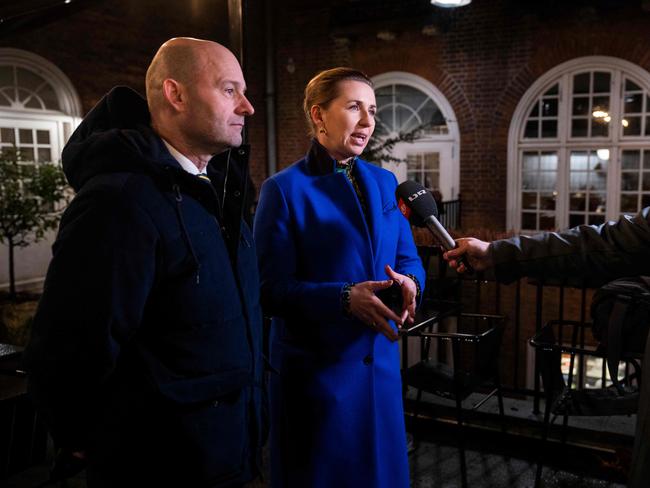
“I dare not say that it is a final goodbye to restrictions,” she said.
“We do not know what will happen in the fall. Whether there will be a new variant.”
Denmark, a nation of 5.8 million, has in recent weeks seen more than 50,000 daily cases on average while the number of people in hospital intensive care units has dropped.
Other EU countries also are relaxing measures. Ireland dropped most of its restrictions and the Netherlands also has been easing its lockdown, though Dutch bars and restaurants still have to close their doors at 10pm.
PFIZER SEEKS TO JAB UNDER 5
Pfizer and BioNTech will soon ask US regulators for emergency authorisation for a Covid-19 vaccine for children aged five and under, US media reported Tuesday.
This is the last age group in the United States that is not yet eligible for coronavirus shots.
As early as Tuesday, the companies could seek emergency authorisation for a two-dose vaccination regimen for children under five and as young as six months, The New York Times and other news outlets said.
The move comes as the Omicron variant wave is waning in the United States but parents are still grappling with school closures and concerns for their unvaccinated children.
New paediatric Covid hospitalisation hit a record high in the United States in December as the Omicron strain spread rapidly.
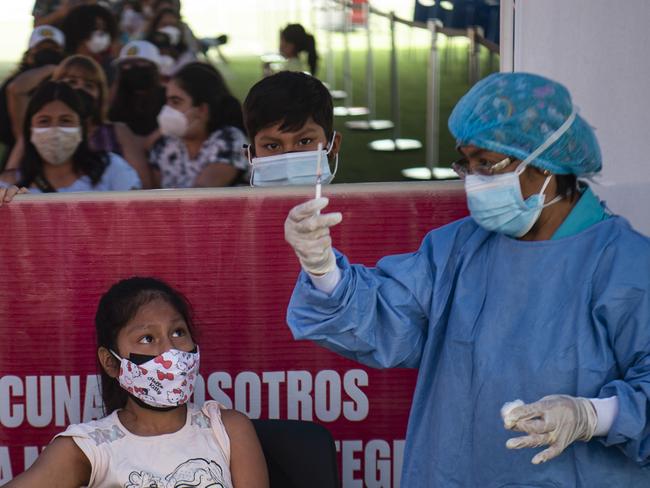
Last month, the Food and Drug Administration approved Pfizer’s Covid-19 booster shot for children as young as 12.
But vaccination rates among this age group are relatively low — less than 22 per cent, according to the Centers for Disease Control and Prevention.
As they seek the green light for children under five to receive two doses of the vaccine, Pfizer and BioNTech will also continue studies on a three-shot regimen, the Times said.
The FDA hopes to approve shots for young kids as early as late February. Data on a three-dose regimen would not be submitted until late March, the daily added.
The companies last year concluded that low doses of the vaccine provided protection in children up to two years old but not in kids aged two to five, announcing in December they would add a third dose to their trials.
“We know that two doses isn’t enough, and we get that,” a source told The Washington Post.
“The idea is, let’s go ahead and start the review of two doses. If the data holds up in the submission, you could start kids on their primary baseline months earlier than if you don’t do anything until the third-dose data comes in.”
BEIJING LOCKS DOWN
Two more districts of Beijing have been locked down after 23 new Covid-19 cases were reported over the weekend, putting thousands of people under restrictions.
With only four days to go until the Winter Olympics begins with the opening ceremony on Friday, officials made the decision to put a second and third area of Beijing under lockdown.
Authorities have locked down housing compounds in Fengtai district, which has an estimated population of 2.26 million, and the Anzhenli neighbourhood, in Chaoyang district, which has approximately 68,000 people, over the last few days.

Residents in both Anzhenli and Fengtai are not allowed to leave their residencies, and will be tested daily.
The restrictions come after 1.2 million people in Xiong‘an New Area, a new economic zone 60 miles southwest of Beijing, were ordered to stay in their homes over a handful of coronavirus cases at the weekend.
However, unlike other lockdowns, no public announcement was made about these fresh restrictions which sparked some confusion among residents.
The Winter Olympics have a “bubble” of cases, which means they are counted separately to the national figures.
These cases have also been growing, with 37 new infections reported among athletes who have either tested positive on arrival at the airport, or within the bubble.
CANADA PM JUSTIN TRUDEAU COVID POSITIVE
Canadian Prime Minister Justin Trudeau said Monday, local time, he had tested positive for Covid-19 but was not experiencing severe symptoms.
The 50-year-old leader – who is vaccinated and boosted – had announced last week he was isolating after being exposed to the coronavirus.
“This morning, I tested positive for Covid-19. I’m feeling fine – and I’ll continue to work remotely this week while following public health guidelines,” the premier wrote on Twitter Monday.
Mr Trudeau, who received his third vaccine dose in January, urged Canadians to get vaccinated and boosted as the nation battles a rise in Covid cases and hospitalisations due to the Omicron variant.
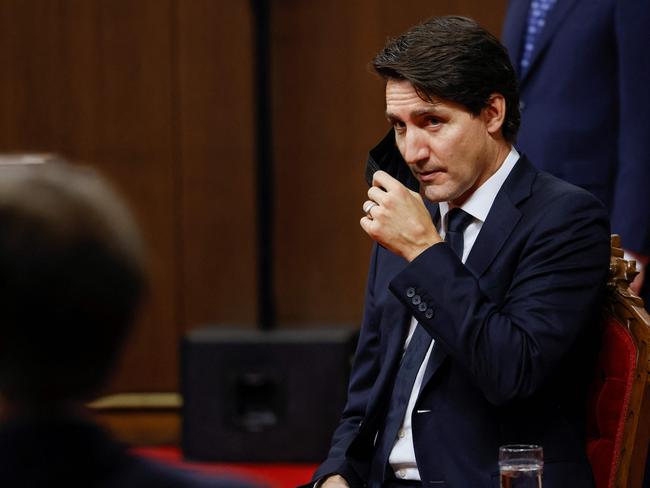
The province of Ontario, where Mr Trudeau lives in the Canadian capital Ottawa, requires people to isolate after a Covid exposure for 10 days if unvaccinated.
Ontario, Canada’s most populous province, is expected to start easing Covid restrictions from Monday, allowing restaurants, bars, sports venues and movie theatres to re-open.
Canada has recorded more than 2.9 million cases of Covid-19 and more than 33,000 deaths since the start of the pandemic.
Ottawa was hit over the weekend by mass protests led by Canadian truckers opposed to vaccine mandates for crossing the Canada-US border.
Mr Trudeau defended the vaccination mandate last week, noting that 90 per cent of drivers are already vaccinated
JACINDA ARDERN TESTS NEGATIVE FOR COVID
New Zealand Prime Minister Jacinda Ardern has tested negative for Covid-19 after being deemed a close contact of a positive Covid-19 case that was on the same flight as her.
In a statement, her office said Ardern remained asymptomatic and feeling well and would continue to self-isolate until Tuesday.
She would chair Cabinet remotely, a spokesman said.
Governor-general Dame Cindy Kiro and Ms Ardern’s chief press secretary, Andrew Campbell, are also isolating, but have returned negative results as well.
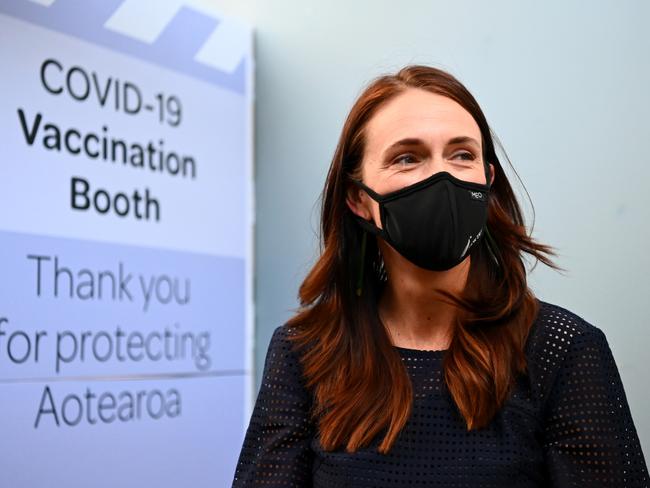
The news comes a week after Ms Ardern cancelled her wedding to her longtime partner as New Zealand moved to the red traffic light setting due to rising Omicron cases.
Ms Ardern announced she and Clarke Gayford, the father of her daughter Neve, had called off their upcoming wedding in Gisborne, on the east coast of the North Island.
The event was set to take place at a lavish homestead at Nick’s Head Station, with Kiwi pop star Lorde said to be performing.
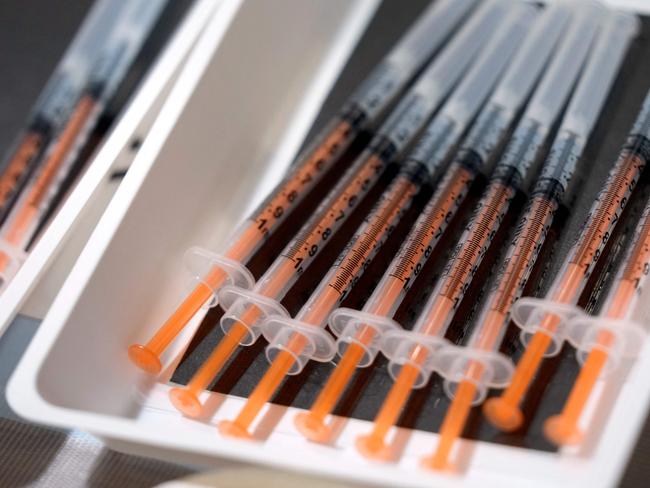
AUSSIE OLYMPIAN CAUGHT BY CHINA’S COVID BORDER RULES
An Australian Winter Olympian has fallen victim to China’s harsh Covid testing at the border by returning a false positive test.
Australian team officials said the athlete – who has not yet been named – arrived in China over the weekend and the initial positive result was from a PCR sample taken after landing.
“We have had an arrival in the last 24 hours and we have had a positive test at the airport,” the Australian team chef de mission Geoff Lipshut said.
“I can’t share the team member’s name right now but we are following the process including required permission to share the medical information of the individual
“This is a concern but it is only the first test.”
A second test later returned a different result, meaning they can still compete if they return another negative test.
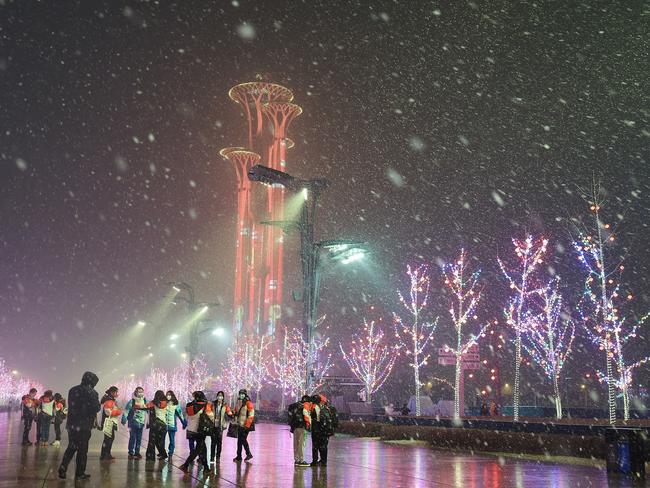
“The team member will now undergo a final test tomorrow, which if again negative, will allow the Member to return to their usual routine,” the Australian Olympic Committee said in a statement.
China’s strict approach to stop Covid spreading has come under fire because they are using tests that detect old infections in athletes.
This has led to an increase in case numbers that have already ruined Olympic campaigns by athletes.
Beijing recorded its highest number of new Covid-19 cases for a year and a half on Sunday, as the Chinese capital gears up to host the Winter Olympics in just five days.
China will hold the Games in a strict “closed-loop” bubble as part of its zero-Covid strategy of targeted lockdowns, border restrictions and lengthy quarantines.
The approach has helped the world’s second-largest economy keep new infections far lower than many other countries, but it is battling local outbreaks in several cities as well as in the Olympic bubble.
The upcoming Lunar New Year – China’s biggest national holiday – presents a further challenge as millions of people return to their hometowns and mingle with family and friends.
Beijing’s tally of 20 new cases on Sunday was the city’s highest since June 2020, according to the National Health Commission (NHC).
City authorities have locked down some housing compounds, while officials in Fengtai district – where most of Sunday’s infections were detected – have begun testing around 2 million people for the virus.
The Olympics bubble separates everyone involved in the Games from the wider Chinese population to kerb the risk of infections leaking out.
The estimated 60,000 people inside the bubble are subject to daily testing. On Sunday, organisers reported 34 new cases related to the Games, bringing the total to more than 200 since the bubble was sealed on January 4.
The new infections include 16 people who are either athletes or team officials, who tested positive either on arrival at the airport or inside the closed loop.
The NHC said Sunday there were 54 new local cases nationwide, as the wealthy eastern city of Hangzhou and the city of Suifenhe in northeastern Heilongjiang province emerged as potential hot spots.
Chinese authorities locked down an area neighbouring Beijing this week following a handful of reported cases, appearing not to publicly announce restrictions that have confined around 1.2 million people in Xiong’an New Area to their homes.
COVID-19 PILL ‘EFFECTIVE AGAINST OMICRON’
Covid-19 “pills” are have shown effectiveness against the Omicron variant in lab trials, according to manufacturer Merck.
Data from six lab studies of the experimental molnupiravir treatment comes as Europe’s medical watchdog approved Pfizer’s rival version of an oral pill, which is based on HIV antiviral ritonavir
Pills are seen as a potentially huge step in ending the pandemic as they can be taken at home, rather than in hospital.
While Merck’s pill has not been tested against Omicron in human trials, the company said it showed “consistent antiviral activity” against the variant.

The in vitro studies were conducted in Belgium, the Czech Republic, Germany, Poland, the Netherlands and the United States.
“Based on its mechanism of action, along with these new findings demonstrating in vitro activity across multiple variants, including Omicron, we anticipate that molnupiravir will continue to be active against variants of concern and an important tool in the fight against COVID-19,” said Ridgeback Biotherapeutics CEO Wendy Holman.
The pill, approved by the US Food and Drug Administration in late December, is authorised in 10 countries, including the UK and Japan.
The Pfizer version of a Covid-19 pill, Paxlovid, became the first oral antiviral treatment approved in Europe.
Studies showed the drug called Paxlovid reduces hospitalisation and death in patients at risk of severe Covid, and may also be effective against the Omicron variant.
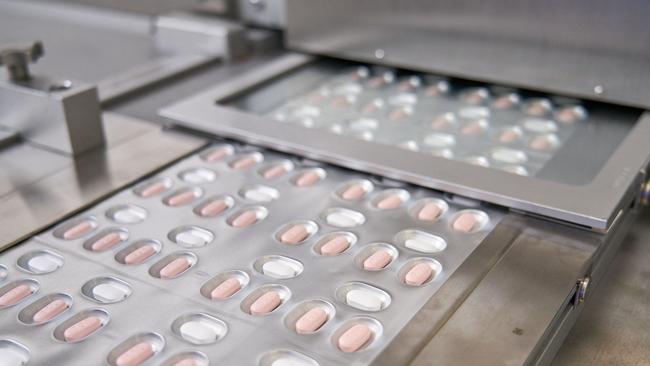
After the European Medicines Agency (EMA) recommended the pill for Covid-19 treatment, it must now be formally rubber-stamped by the European Commission.
The United States, Canada and Israel are among a handful of countries to have already given the green light to the Pfizer treatment.
“Paxlovid is the first oral antiviral for home use in our portfolio, and has the potential to make a real difference for persons at high risk of progression to severe Covid,” EU Health Commissioner Stella Kyriakides said in a statement.
“We have also seen the promising evidence regarding Paxlovid’s effectiveness against Omicron and other variants.”
The Pfizer treatment is a combination of a new molecule, PF-07321332, and HIV antiviral ritonavir, which are taken as separate tablets.
The EMA said it “recommended authorising Paxlovid for treating Covid-19 in adults who do not require supplemental oxygen and who are at increased risk of the disease becoming severe”.
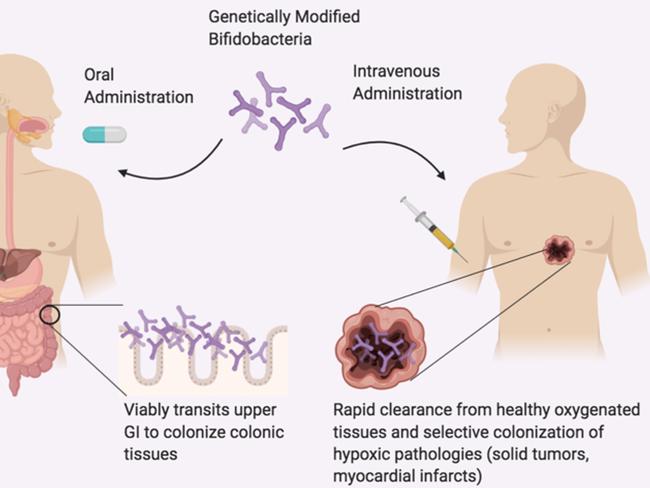
EMA experts looked at a study “showing that treatment with Paxlovid significantly reduced hospitalisations or deaths in patients who have at least one underlying condition putting them at risk of severe Covid-19”.
Patients were given the pill within five days of developing symptoms and over the following month only 0.8 per cent of the 1,039 people studied ended up in a hospital, compared with 6.3 per cent of those who received a placebo.
There were no deaths in the Paxlovid group and nine deaths in the placebo group, the EMA said.
In December the EMA cleared individual states to decide whether to make early emergency use of Paxlovid, but held off on deciding on full authorisation across the 27-nation bloc.
Unlike vaccines, the Pfizer treatment does not target the ever-evolving spike protein which the coronavirus uses to invade cells.
It should, therefore, in theory, be more variant-proof, and the company has said preliminary lab studies have backed up that hypothesis.


